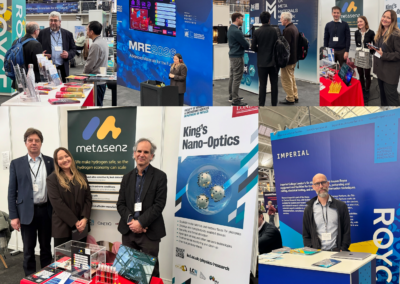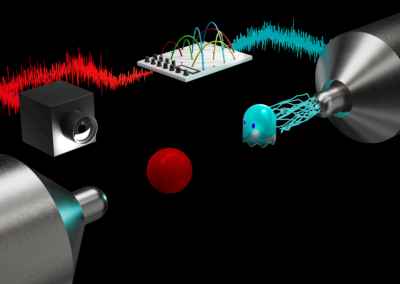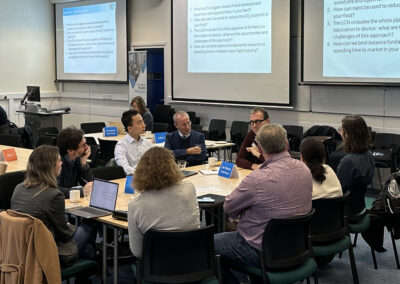A form of brain-inspired computing that exploits the intrinsic physical properties of a material to dramatically reduce energy use is now a step closer to reality, thanks to a new study led by LCN Researchers from UCL and Imperial College London
Such an approach, known as physical reservoir computing, has until now been limited due to its lack of reconfigurability. This is because a material’s physical properties may allow it to excel at a certain subset of computing tasks but not others.
In the new study, published in the journal Nature Materials, an international team of researchers used chiral (twisted) magnets as their computational medium and found that, by applying an external magnetic field and changing temperature, the physical properties of these materials could be adapted to suit different machine-learning tasks.
Dr Oscar Lee (London Centre for Nanotechnology at UCL and UCL Department of Electronic and Electrical Engineering), the lead author of the paper, said: “This work brings us a step closer to realising the full potential of physical reservoirs to create computers that not only require significantly less energy, but also adapt their computational properties to perform optimally across various tasks, just like our brains.
“The next step is to identify materials and device architectures that are commercially viable and scalable.”
Traditional computing consumes large amounts of electricity. This is partly because it has separate units for data storage and processing, meaning information has to be shuffled constantly between the two, wasting energy and producing heat. This is particularly a problem for machine learning, which requires vast datasets for processing. Training one large AI model can generate hundreds of tonnes of carbon dioxide.
Physical reservoir computing is one of several neuromorphic (or brain inspired) approaches that aims to remove the need for distinct memory and processing units, facilitating more efficient ways to process data. In addition to being a more sustainable alternative to conventional computing, physical reservoir computing could be integrated into existing circuitry to provide additional capabilities that are also energy efficient.
Read publication here
More info here



